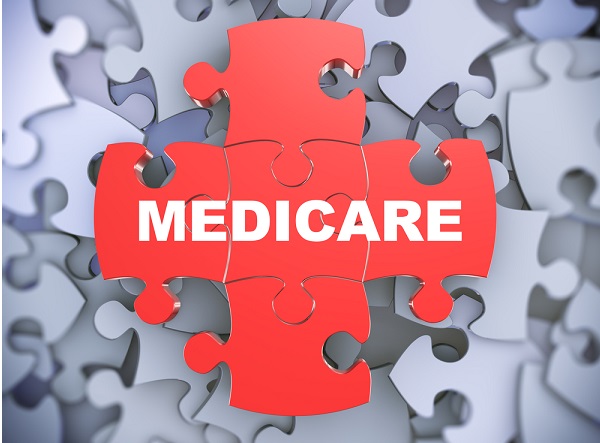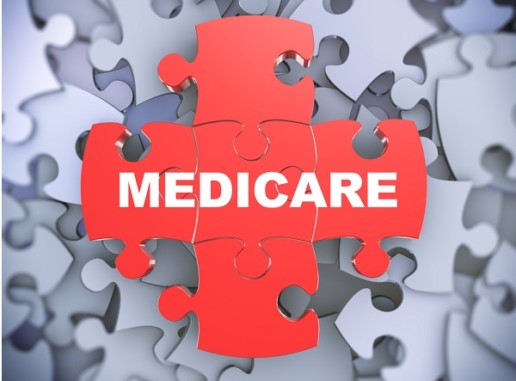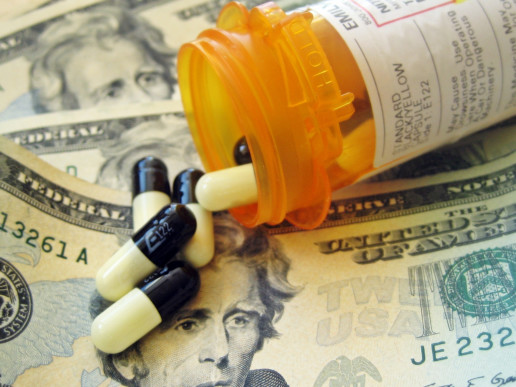Half of Americans think the ACA marketplace is collapsing
Most Americans are happy with the insurance they buy on the individual market, yet those same people think the markets are collapsing before their eyes.
A poll by the Kaiser Family Foundation (Kaiser Health News is an editorially independent program of the foundation), released Tuesday, found that 61 percent of people enrolled in marketplace plans are satisfied with their insurance choices and that a majority say they are not paying more this year compared with last year’s premium costs.
Yet, more than half of the overall public — 53 percent — also think the Affordable Care Act’s marketplaces are “collapsing.”
Experts have warned that some policy actions supported by the Trump administration would undermine the market, including repealing the penalty for going without insurance and giving people the option to buy short-term plans. Such plans are often less expensive but cover fewer benefits. They are not automatically renewable, and insurers are able to charge people with medical conditions more — or exclude them altogether.
But only about one-fifth of people who obtain coverage on the individual market were even aware that the mandate penalty had been repealed as of 2019, according to the poll. It is still in effect this year.
Nine in 10 enrollees said they would still buy insurance without the penalty, and 34 percent said the mandate was a “major reason” they chose to buy insurance at all.
“They may have been prompted to buy the coverage in the first place because of the mandate,” said Sabrina Corlette, a professor at Georgetown University’s Health Policy Institute. “But now that they’ve got it, they clearly value it.”
Most of the people who buy plans because they don’t get coverage through work or the government, 75 percent, said they bought insurance to protect against high medical bills, and 66 percent said peace of mind was a major reason.
In February, President Donald Trump eased some of the restrictions on short-term insurance plans, allowing them to cover people for 12 months instead of three.
Critics worried this alternative would draw people away from traditional insurance plans and weaken the individual market. According to the poll, though, only 12 percent of respondents buying on that market said they’d be interested in buying one of the short-term plans.
Georgetown’s Corlette cautioned that these numbers could change when people are faced with an actual choice next open enrollment season.
“If you look at how these things are marketed, your average consumer will not be able to tell that these products are any different from a traditional health plan,” she said.
Most people said they didn’t face a premium increase this year. Thirty-four percent said their premiums were “about the same” as last year and 23 percent said they actually went down.
That’s not surprising, said Joseph Antos, a resident scholar at the conservative American Enterprise Institute who follows the health industry. Many consumers saw their premium subsidies rise too.
Thirty-five percent of people said one of the major reasons they bought insurance was because government subsidies made it affordable.
The subsidies that people receive, Antos noted, went up to offset the premium increase in many cases, especially if consumers took the advice of experts and shopped around for coverage.
“They’re buying because they feel they need insurance and that their net premiums and deductibles add up to something they’re willing to buy,” Antos said.
The poll was conducted Feb. 15-20 and March 8-13 among 2,534 adults. The margin of sampling error is +/-2 percentage points for the full sample, +/-7 percentage points for all non-group enrollees and +/-9 percentage points for marketplace enrollees.
Source: Kaiser Health News senior correspondent Julie Appleby contributed to this report.
By Rachel Bluth, Kaiser Health News | April 03, 2018 at 10:06 AM | Originally published on BenefitsPro
Medicare Advantage payments to see 3.4 percent increase next year

The U.S. agency that oversees Medicare said it will increase payments to privately run health plans for the elderly by an average of 3.4 percent next year, almost double the amount it had previously estimated.
That’ll be a boon for insurers such as UnitedHealth Group Inc. and Humana Inc. that have big businesses selling the private plans, known as Medicare Advantage. Including changes based on how sick or healthy people are, the total increase in payments to insurers is estimated to be about 6.5 percent, on average, the Centers for Medicare and Medicaid Services said in a statement Monday.
Medicare Advantage is an important source of growth for health insurers as the U.S. population ages and more people opt for the private plans, rather than the traditional Medicare program. About 21.4 million people are enrolled in the private plans, while 37.7 million rely on standard Medicare.
Medicare Advantage has drawn plenty of interest from both startups and established firms. Walmart Inc. may be seeking a broader partnership with Humana Inc. in part to benefit from growing enrollment in the plans, Bloomberg reported late last week. CVS Health Corp. agreed to acquire Aetna Inc. late last year in a bet in part on providing better care for seniors.
Source: Tracer Z. (3 April 2018). "Medicare Advantage payments to see 3.4 percent increase next year" [Web Blog Post]. Retrieved from Benefits Pro.
Summarized Report of The Kaiser Health Tracking Poll March 2018 for Non-Group Enrollees
Kaiser Health Tracking Poll – March 2018: Non-Group Enrollees
Key Findings: As part of the Republican tax reform plan signed into law at the end of 2017, lawmakers eliminated the ACA’s individual mandate penalty starting in 2019. About one-fifth of non-group enrollees (19 percent) are aware the mandate penalty has been repealed but is still in effect for this year. Regardless of the lack of awareness, nine in ten non-group enrollees say they intend to continue to buy their own insurance even with the repeal of the individual mandate. About one-third (34 percent) say the mandate was a “major reason” why they chose to buy insurance.
Survey: 9 in 10 people with non-group health insurance plan to continue buying insurance despite the repeal of the individual mandate penalty About half the public overall believes the ACA marketplaces are “collapsing,” including six in ten of those with coverage purchased through these marketplaces. In fact, across party identification and insurance type, more say the marketplaces are “collapsing” than say the marketplaces are not collapsing. Overall, the population who buy their insurance through the ACA marketplace report being satisfied with the insurance options available to them during the most recent open enrollment period and more than half give the value of their insurance a positive rating. Yet, some (32 percent) experienced problems while trying to renew or buy their coverage and six in ten marketplace enrollees say they are worried about the possible lack of health insurance coverage in their areas.
In 2017, President Trump issued an executive order directing his administration to expand the availability of non-renewable short-term insurance plans, and regulations have been proposed to implement the order. When asked whether non-group enrollees would prefer to purchase such a plan or prefer to keep the plan they have now, the vast majority (84 percent) say they would keep the plan they have now while 12 percent say they would want to purchase a short-term plan. The most common response offered by people who are uninsured when asked the reason why they don’t have health insurance is that it is too expensive and they can’t afford it (36 percent), followed by job-related issues such as unemployment or their employer doesn’t offer health insurance (20 percent).
Who Are Non-Group Enrollees?
This report examines people’s experiences with the current health insurance market focusing on individuals who currently have health insurance they purchased themselves (referred to as “non-group enrollees” throughout the report). This is comprised of individuals who purchase their own insurance through an Affordable Care Act (ACA) marketplace (“marketplace enrollees”) as well as those who purchase their insurance outside of the ACA markets. 1 In the first half of 2017, 10.1 million people had health insurance that they purchased through the ACA exchanges or marketplaces. 2 For comparison, the report also examines individuals ages 18-64 without health insurance (“uninsured”) as well as those who get their insurance through their employer (“employer-sponsored insurance”).
These extended interviews were conducted as part of the February and March Kaiser Health Tracking Polls and were completed after the close of the law’s fifth open enrollment period, which ended earlier this year. The Individual Mandate as part of the Republican tax reform plan signed into law at the end of 2017, lawmakers eliminated the ACA’s individual mandate penalty. The tax plan reduced the individual penalty for not having health insurance to zero beginning in 2019, effectively repealing the least favorable provision of the ACA (according to polling conducted by Kaiser Family Foundation). There is still uncertainty among the public as well as among the groups most directly affected by the individual mandate (non-group enrollees and the uninsured) on the status of the mandate.
—kff.org
The Results Are In: These Are the Companies With the Most Influence Over Washington
Poll: Americans Aghast Over Drug Costs But Aren’t Holding Their Breath For A Fix
The recent school shootings in Florida and Maryland have focused attention on the National Rifle Association’s clout in state and federal lobbying activities. Yet more than the NRA or even Wall Street, it’s the pharmaceutical industry that Americans think has the most muscle when it comes to policymaking. A poll from the Kaiser Family Foundation found that 72 percent of people think the drug industry has too much influence in Washington —outweighing the 69 percent who feel that way about Wall Street or the 52 percent who think the NRA has too much power. Only the large-business community outranked drugmakers. (Kaiser Health News is an editorially independent program of the foundation.)
Drug prices are among the few areas of health policy where Americans seem to find consensus. Eighty percent of people said they think drug prices are too high, and both Democrats (65 percent) and Republicans (74 percent) agreed the industry has too much sway over lawmakers. Democrats were far more likely than Republicans — 73 vs. 21 percent — to say the NRA had too much influence. The monthly poll also looked at views about health care. Americans may be warming to the idea of a national health plan, such as the Medicare-for-all idea advocated by Sen. Bernie Sanders (I-Vt.). Overall, 59 percent said they supported it, and even more, 75 percent, said they would support it if it were one option among an array for Americans to choose.
Americans are far more concerned with lowering prescription drug prices, though they don’t trust the current administration to fix the problem. Fifty-two percent said lowering drug costs should be the top priority for President Donald Trump and Congress, but only 39 percent said they were confident that a solution would be delivered. “There’s more action happening on the state level; what we are finding is they’re not seeing the same action on the federal level,” said Ashley Kirzinger, a senior survey analyst for KFF’s public opinion and survey research team. “They’re holding the president accountable as well as leaders of their own party.”
Overall, at least three-quarters of people don’t think Democrats and Republicans in Congress, as well as the Trump administration, are doing enough to bring costs down. Twenty-one percent reported that they didn’t trust either party to lower prices, up from 12 percent in 2016. And, unlike other health-related policy questions such as repealing the Affordable Care Act or creating a national health plan, the poll does not find a partisan divide on this perception.
Passing legislation to lower drug prices was at the top of the list of the public’s priorities, making it more important than infrastructure, solving the opioid epidemic, immigration reform, repealing the ACA or building a border wall. Looking ahead to the 2018 midterm elections, 7 percent reported that creating a national health plan was the “single most important factor” for how they would vote in 2018. However, 7 in 10 said it is an important consideration, and 22 percent said it is not an important factor at all.
The poll found that support for the federal health law fell this month, from February’s all-time high of 54 percent to 50 percent in March. Opposition moved up slightly from 42 to 43 percent. The poll was conducted March 8-13 among 1,212 adults. The margin of sampling error is +/-3 percentage points. KHN’s coverage of prescription drug development, costs and pricing is supported by the Laura and John Arnold Foundation .
—khn.org





